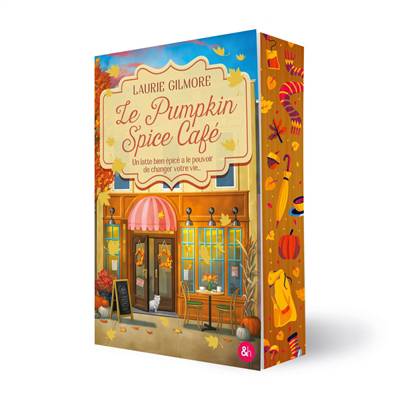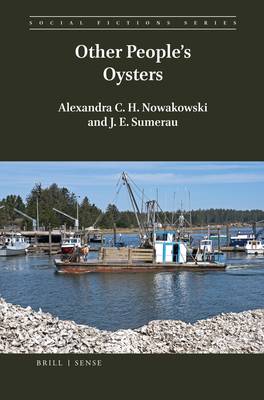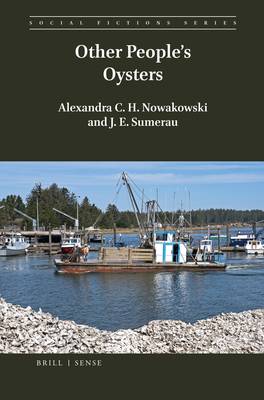
- Retrait gratuit dans votre magasin Club
- 7.000.000 titres dans notre catalogue
- Payer en toute sécurité
- Toujours un magasin près de chez vous
- Retrait gratuit dans votre magasin Club
- 7.000.0000 titres dans notre catalogue
- Payer en toute sécurité
- Toujours un magasin près de chez vous
Description
There may be no more famous form of seafood than an Apalachicola oyster. People travel from all over the world for the chance to try out these oysters and gush over just how large, flavorful, and unique they are in comparison to other foods. In Other People's Oysters, however, Apalachicola oysters are not merely internationally known delicacies bringing money and recognition to the bay - they are the center of family ties, a symbol of a disappearing way of life, and the catalyst for a social movement that rocks the nation.
Tripp and Jessica Rendell have lived on Richards Island in the Apalachicola Bay harvesting, selling, and cooking oysters for decades. During this time, their children - Carina, Bobby, and Roy Lee - grew up to take over the harvesting business (Carina), take over the family restaurant (Bobby) and run off into the wider world to become a lawyer and political activist (Roy Lee). Through the eyes of Carina, we watch life and work change throughout the bay throughout these decades, and witness the ways corporate, environmental and political policy focused more on wealth than the lives of the people and the conservation of the bay led to increasing poverty, decreasing oyster production, and the ongoing destruction of the bay. But when her latest series of law suits seeking aid and reparation stall in the courts, Roy Lee moves back home and forms a plan for taking back the bay, raising up the people, and fighting for the Rendells' way of life.
Other People's Oysters may be read entirely for pleasure and used in courses focused on social movements, families, class dynamics, politics, environmentalism, mental diversity, sexualities, gender, rural and small town cultures, intersectionality or the American southeast.
Tripp and Jessica Rendell have lived on Richards Island in the Apalachicola Bay harvesting, selling, and cooking oysters for decades. During this time, their children - Carina, Bobby, and Roy Lee - grew up to take over the harvesting business (Carina), take over the family restaurant (Bobby) and run off into the wider world to become a lawyer and political activist (Roy Lee). Through the eyes of Carina, we watch life and work change throughout the bay throughout these decades, and witness the ways corporate, environmental and political policy focused more on wealth than the lives of the people and the conservation of the bay led to increasing poverty, decreasing oyster production, and the ongoing destruction of the bay. But when her latest series of law suits seeking aid and reparation stall in the courts, Roy Lee moves back home and forms a plan for taking back the bay, raising up the people, and fighting for the Rendells' way of life.
Other People's Oysters may be read entirely for pleasure and used in courses focused on social movements, families, class dynamics, politics, environmentalism, mental diversity, sexualities, gender, rural and small town cultures, intersectionality or the American southeast.
Spécifications
Parties prenantes
- Auteur(s) :
- Editeur:
Contenu
- Nombre de pages :
- 216
- Langue:
- Anglais
- Collection :
- Tome:
- n° 27
Caractéristiques
- EAN:
- 9789004371477
- Date de parution :
- 29-03-18
- Format:
- Livre broché
- Format numérique:
- Trade paperback (VS)
- Dimensions :
- 155 mm x 231 mm
- Poids :
- 430 g

Les avis
Nous publions uniquement les avis qui respectent les conditions requises. Consultez nos conditions pour les avis.






